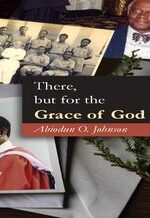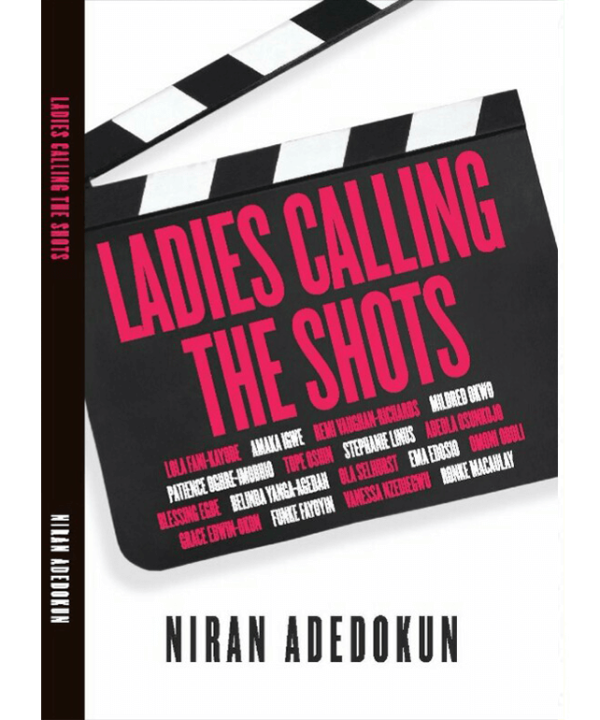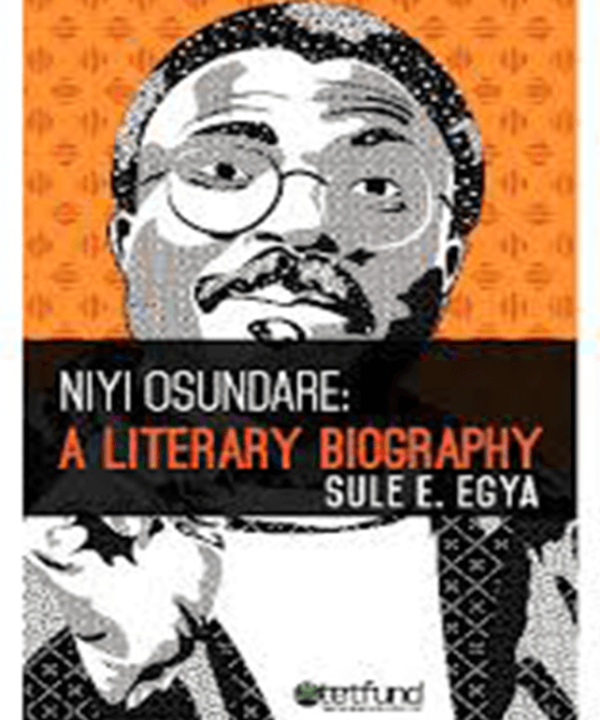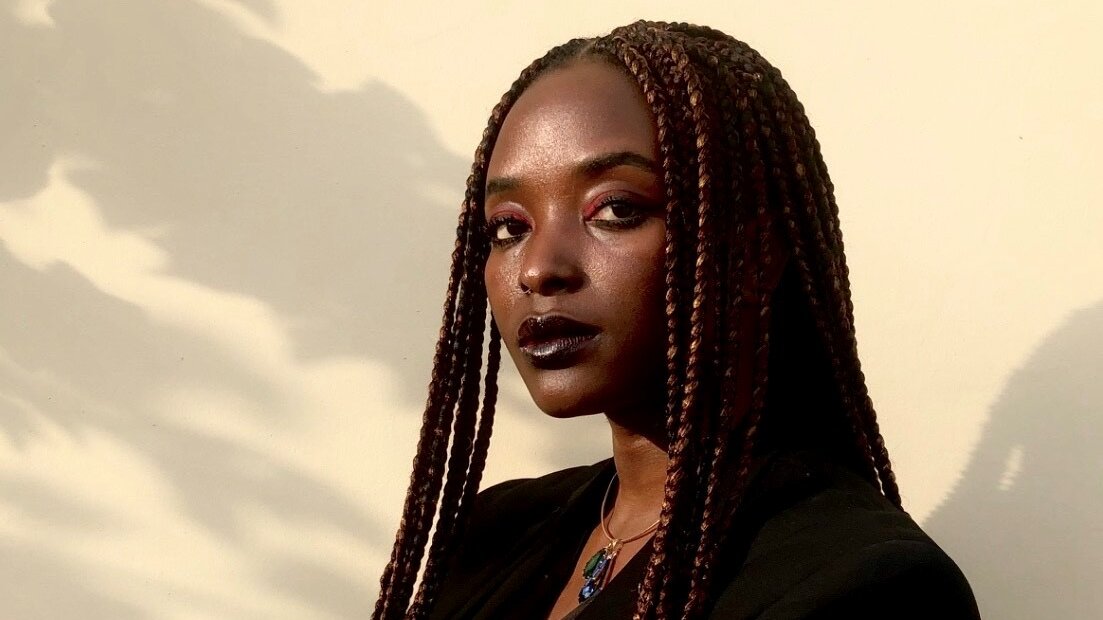-
×
 There, but for the Grace of God
1 × ₦3,000.00
There, but for the Grace of God
1 × ₦3,000.00 -
×
 Ladies Calling the Shots
1 × ₦6,000.00
Ladies Calling the Shots
1 × ₦6,000.00 -
×
 Niyi Osundare: A Literary Biography
1 × ₦5,000.00
Niyi Osundare: A Literary Biography
1 × ₦5,000.00
Interviews
The Sweet Point Where A Calling Meets Craft -In Conversation With Eloghosa Osunde
This interview took place between Nnaemeka Nnam and Eloghosa Osunde via email.
Eloghosa Osunde is a Nigerian writer and multidisciplinary maker. An alumna of the Lambda Literary Workshop (2019), New York Film Academy (2017) and the Caine Prize Workshop (2018), Eloghosa’s writing has appeared in multiple publications including Paris Review (where she writes a column), Granta, Gulf Coast, Georgia Review, Guernica, Lithub, Catapult, Berlin Quarterly and her visual art in Vogue, The New York Times and Paper Magazine. She is a 2020 MacDowell Colony Fellow and the 2021 prose judge of Fugue Journal’s annual writing contest. Recently profiled by Coveteur for their Class of 2021 issue, Eloghosa has also been featured by Elle, Them, Creative Review and Shondaland, to name a few.
Nnaemeka: Thank you so much for granting me this interview. I have been a fan of your work for years now. I remember reading Good Boy for the first time and I literally screamed. I forwarded the link to my friends and basically bullied them into reading it and they all loved it.
I think my favourite thing about you as a writer is that you have complete control over your language. You write in a way that can only be described as you, as Eloghosa Osunde!
I remember of course searching for your other stories after Good Boy and my god!, my life literally changed with Gold. You make sure your words earn their stay in a sentence. Every word is accounted for, every sentence serves multiple purposes all at once. I remember thinking, How does she do that? And in Gold, you wrote;
“…she just wanted to remain herself. She wanted to be legible and loved in that reading.”
I was just like, wow, she is just showing off at this point. LOL.
Eloghosa: That’s hilarious. Thank you, Emeka!
Nnaemeka: What was the journey like finding your voice? Was that something you think you’ve always had? Or did it take some decent amount of work?
Eloghosa: You know how people ask that question about whether artists are born or made? I think the answer differs depending on who you’re referring to; but I’m definitely both. I was born with the ability to move people with words, and that was true even when I was two years old and not writing yet. When I found words in books, I took them seriously. I wrote even before I knew I could pursue that professionally. I wrote because I believed my words should exist and be read, even if it was just a small circle of ten people. When I found out, about ten or so years ago, that people could do this for real — as in move through the world as authors, for work — I said yes to that road, started paying attention to the business of it, and training like a beast. That has paid off in a different way. To say: what you see isn’t pure training and grit or pure grace and gift, it’s the sweet point where a calling meets craft.
Nnaemeka: That’s such a brilliant line; what you see isn’t pure training and grit or pure grace and gift, it’s the sweet point where a calling meets craft.
Vagabonds! Is such a force of a book and we have all watched it burn through the world, the Greek translation is out, and the paperback is out in the US. Was that something you expected? For the book to burn through the world?
Eloghosa: Yes. I did expect it to burn through the world. Vagabonds! started as a spiritual project for me. It was a thing I knew I had been given capacity to bring forth into the world. There was rigorous training involved that has nothing to do with writing. This is my last life. I risked a lot to write that book: old selves, distractions and habits, my hold on safety. I risked a lot because I knew that all I needed was for those words to be printed. Everything else was a kind of prophecy. The arc you’re seeing was written. I’m not here to play. Everything I touch will make its own distinct mark. V! is just the first.
what you see isn’t pure training and grit or pure grace and gift, it’s the sweet point where a calling meets craft
Nnaemeka: One of my favourite things about Vagabonds! Is the type of book I see it associated with. So on bookstagram, we see the category of books that are placed alongside Vagabonds! And I very much believe that’s very appropriate, does it make you feel any type of way seeing your work associated with the likes of Maya Angelou, Toni Morrison etc?
Eloghosa: It’s really funny because when I read Maya Angelou’s memoirs, I thought that was the only kind of writing I could do. Writing from inside my life, about my life. I was sixteen then, and I promised myself to live an interesting enough life to write a memoir one day. I always knew I’d have books, but I thought they’d be reflective. It shocked me to learn I could write fiction also. So in a way, Maya Angelou strengthened my resolve to be a writer. Seeing my book next to hers is surreal in that sense. Seeing my book next to Toni Morrison, Salman Rushdie, Zadie Smith still moves the version of me who thought fiction was for me to read, but not write. To other parts, it now makes complete sense.
Nnaemeka: Tatafo was a very entertaining storyteller, did he initially come to you that way? With all that swagger and openness?
Eloghosa: Soon as I knew his name, I knew him. I love him. I didn’t create that character; he happened to me. And then I transcribed that experience.
I’m not here to play. Everything I touch will make its own distinct mark. V! is just the first.
Nnaemeka: There is something interesting about Vagabonds! It’s in the sense that it is polarising. So people either love it so much that they are obsessed or they are not able to get into it. how has this experience been for you?
Eloghosa: It doesn’t bother me. I understand both. I wrote a book that is clear about itself. Its voice is its own, its biases are blatant, its fury is clear for anyone who’s looking to see. People are free to decide how to engage with all that. But nothing can change what the book is at its core.
Nnaemeka: What is your favourite paragraph from the book? I know you probably love them all but what was the paragraph or a page that was very exciting for you to write?
Eloghosa: The Only Way Out Is Through still flays me to this day. I know you asked for a paragraph or page, but for me it’s actually the whole chapter. That story carries a lot of weight, a lot of grief, a lot of love, a lot of life and layered realities. I hold that one close, for sure.
Nnaemeka: Vagabonds! Went out of print less than a year after it came out, which is such a wonder, please tell us, how did the idea of Vagabonds! Come to you? And how long did it take from conception to finished draft?
Eloghosa: It’s surreal actually, because that doesn’t include eBooks and audiobooks. There are different waves moving with the US and UK editions also. Now with the Greek translation also.
The idea of Vagabonds! became complete for me after two things: a death, and a close look at Nigeria’s constitution. I’ve talked before about how the former jolted me into remembering that time could run out, and really no one could do anything about it. If your work wasn’t done by then, then it wasn’t. Around the same time, I came across the definition of vagabond under the SSMPA and it opened up a lot for me. I had no idea the word had been written into law that way. When I found it, I went back and opened an old document. The book’s skeleton was there. I built on it more by assembling my stories and finding their thread. More came to me with time. Then more. Then more. If we’re including the thinking and building, then let’s say that time capsule was almost three years wide in total — from Night Wind, the first story I published as a standalone. If we mean just the setting down of words, let’s call it five to nine months. That part was a fever, really.
Nnaemeka: Thank you so much for speaking with me, this conversation has been very illuminating and we are looking forward to your next book!
Vagabonds! tackles the insidious nature of Nigerian capitalism, corruption and oppression, and offers a defiant, joyous and inventive tribute to all those for whom life itself is a form of resistance.
With Tatafo as our guide, we meet these people in the shadows. Among them are a driver for a debauched politician; a lesbian couple whose tender relationship sheds unexpected light on their experience with underground sex work; a mother who attends a secret spiritual gathering that shifts her reality. As their lives begin to intertwine—in markets and underground clubs, in churches and hotel rooms—the vagabonds are seized and challenged by the spirits who command the city. A force is drawing them all together, but for what purpose?
You can grab a copy here.
About the Writer: Nnaemeka Nnam is a Nigerian writer and bookstagrammer. Nnaemeka wants you to embrace love, sadness and joy as they come. When they are not obsessing over books on Instagram, they are wishing upon a star.


 There, but for the Grace of God
There, but for the Grace of God  Ladies Calling the Shots
Ladies Calling the Shots  Niyi Osundare: A Literary Biography
Niyi Osundare: A Literary Biography 